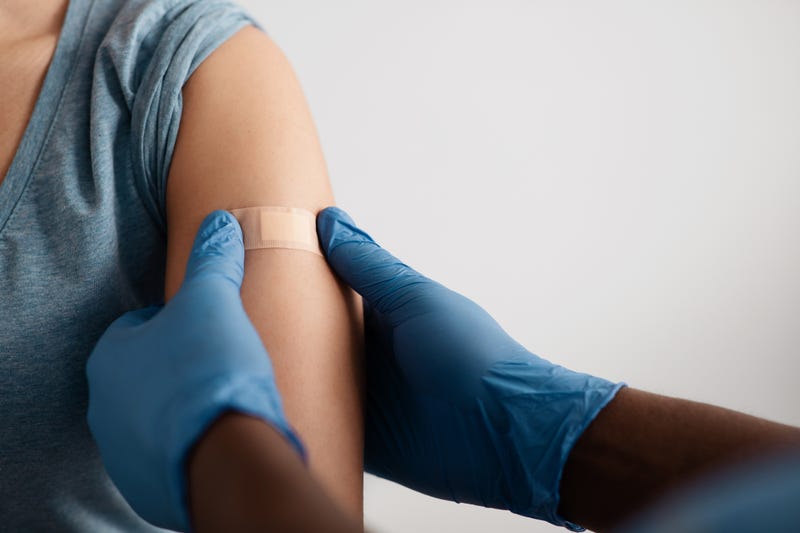
With booster shots of COVID-19 vaccines now available to certain populations in the U.S., many people are wondering just how effective their initial vaccines are.
A study of more than 780,225 patients served by the Veterans Health Administration published Thursday in the Science journal found that from February to October of this year, overall COVID-19 vaccine efficacy dropped from 87.9 percent to 48.1 percent.
As the Delta variant of the virus became dominant, effectiveness to all three approved vaccines in the country decreased, said researchers who conducted the study.
The Johnson & Johnson single-dose vaccine declined the most, becoming just 13.1 percent effective against infection; the Pfizer BioNTech became 45 percent effective against infection and the Moderna vaccine became 58 percent effective. When first released, the Johnson & Johnson vaccine was estimated to be around 76.3 percent effective, the Pfizer vaccine was 95 percent effective and the Moderna vaccine was 94.1 percent effective.
“Patterns of breakthrough SARS-CoV-2 infection among vaccinated veterans show a worrisome temporal trend, overlapping with the emergence of Delta as the dominant variant in the U.S. in July 2021,” said the study.
While the vaccines’ ability to prevent infection waned in the months after people received their shots, they continued to protect against hospitalization and death. However, the study noted that these benefits also lessened as COVID-19 took hold.
For veterans age 65 and older who experienced breakthrough infections, the Johnson & Johnson vaccine was 52 percent effective at preventing death, the Pfizer vaccine was 70 percent effective at preventing death and the Moderna vaccine was 76 percent effective at preventing death.
“These results demonstrate an urgent need to reinstate multiple layers of protection, such as masking and physical distancing – even among vaccinated persons – while also bolstering current efforts to increase vaccination,” said the researchers.
According to the study, it is unclear whether breakthrough infections increase risk of long COVID, or debilitating and lingering symptoms following infection.
“These symptoms can lead to physiologic disruption of multiple organ systems, substantial disruption of daily life, employment, and mental health, and a higher burden on the healthcare system,” and can result from both mild and severe COVID-19 infections, they said. “Therefore, prevention of breakthrough infections may avoid the overwhelming, long-term consequences of long COVID due to widespread infection.”
Vaccine efficacy can be improved with booster shots, according to the Food and Drug Administration. In the U.S., boosters are currently recommended by the Centers for Disease Control and Prevention for people over age 65 or people who have high risk conditions six months after they receive a Pfizer or Moderna vaccine and anyone who received the Johnson & Johnson vaccine two months after their first dose.


